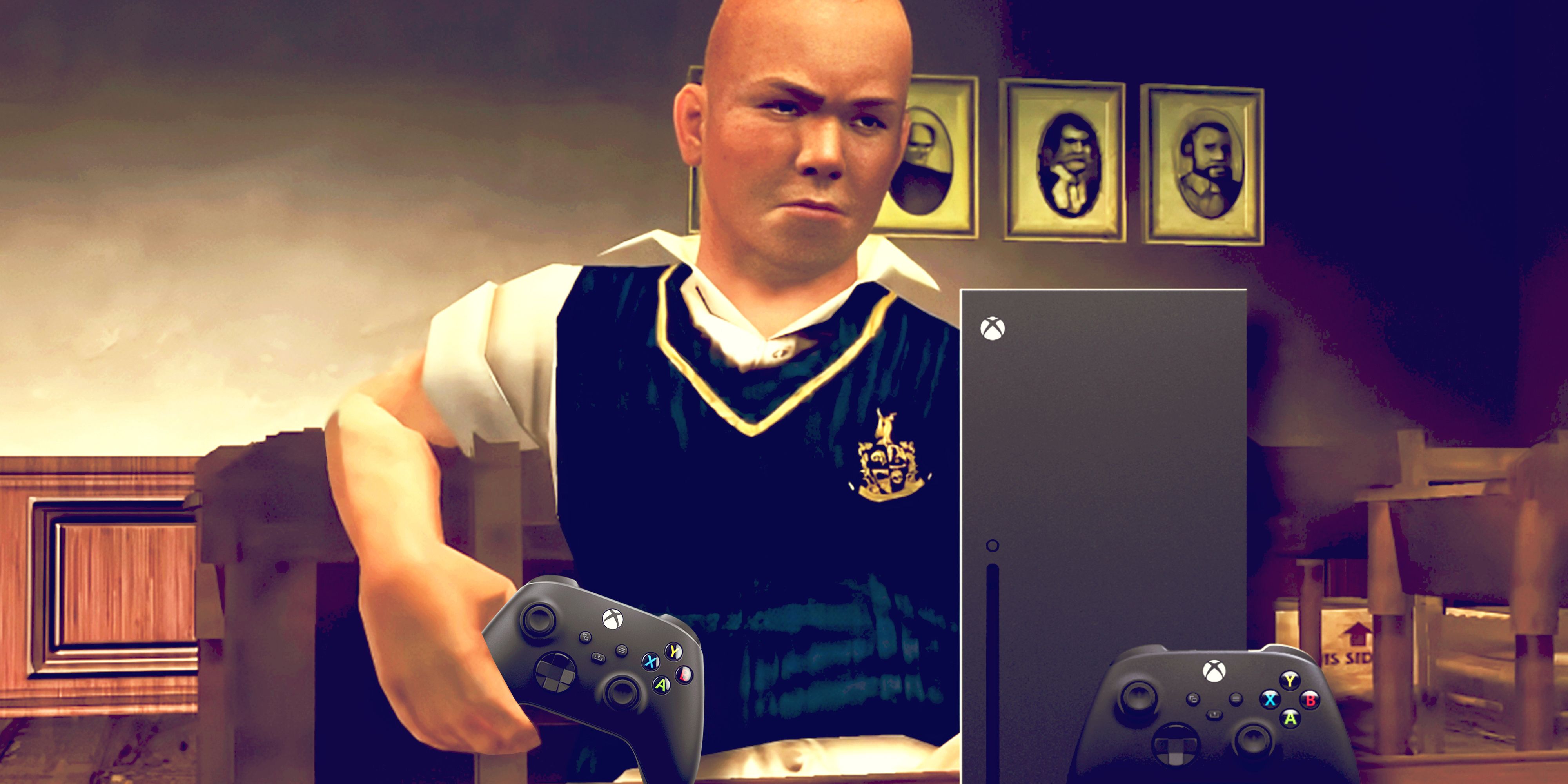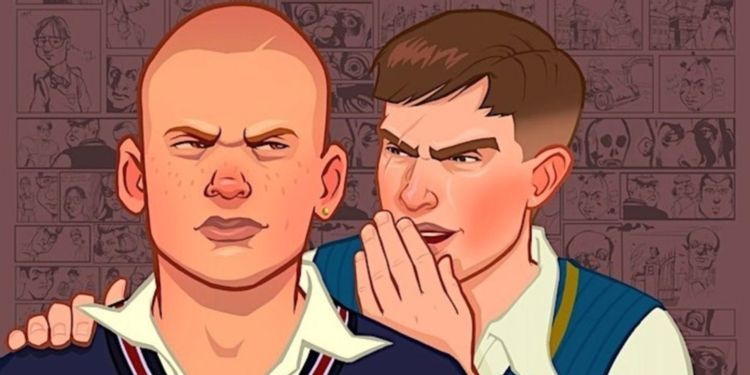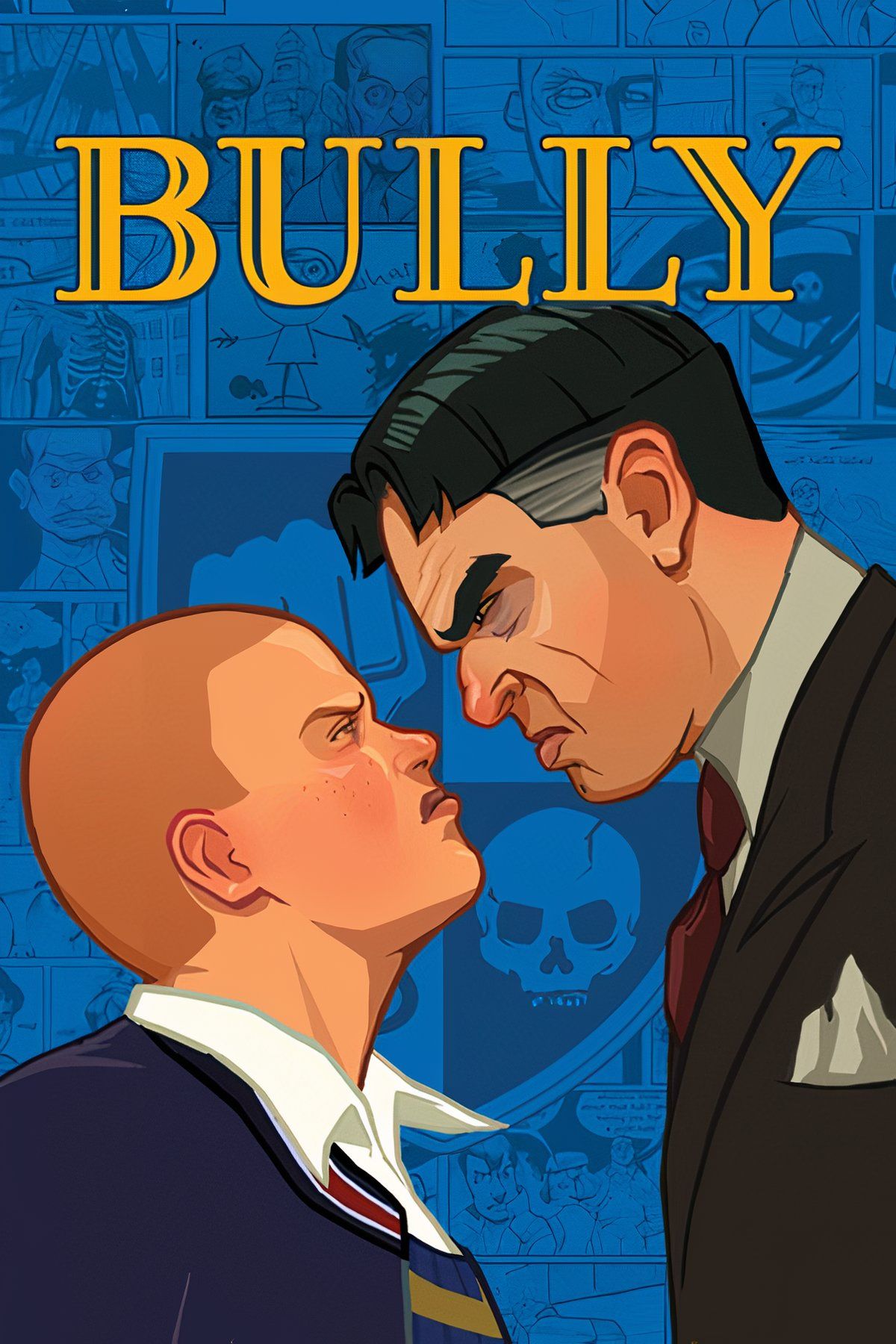Bully was a highly controversial game when it first launched in 2006, largely undeservedly. It was banned in Brazil for eight years, blacklisted by two British retailers, and Rockstar was even sued by anti-video game activist John Thompson, who said Bully was a “Columbine simulator” and “inappropriate for children”.
Outrage in the UK was so extensive that Rockstar was forced to rename the game to ‘Canis Canem Edit’ to avoid using the world ‘Bully’ altogether.
In reality, Bully isn’t all that inappropriate. Scaremongering amongst activists prior to the game’s release feared it would increase rates of bullying in schools, but Bully is less bully simulator, and more high school simulator. Sure, Jimmy gets into a lot of fights, but violence is generally disincentivised by the game’s design. Generally, delving deep into the world will mean causing general mischief – the kind that misbehaving children get up to, sure, but nothing that off-colour.
Detractors said the game was basically Grand Theft Auto in school, which is inaccurate. They have similar but adapted mechanics, but Bully is tonally and thematically very different. As TheGamer Editor-in-Chief Stacey Henley says, Bully is a lot more like Yakuza.
There hasn’t been a game like Bully since Bully. Arguably, there will never be another game like Bully. It’s too small in scope for Rockstar, a studio now known for blockbusters, to spend resources on, and it doesn’t seem all that interested in bringing one to life, despite having reportedly worked on a sequel, but that doesn’t mean that others haven’t tried.

Related
Bully On GTA+ Is A Great Opportunity To Revisit Rockstar’s Most Grounded Open-World
Rockstar has never made an open-world game as small scale as Bully, and that’s what makes it great.
Bully Was Surprisingly Progressive

This op-ed was largely precipitated by me seeing the trailer for Agefield High: Rock the School, and being disappointed by what it showed me. It offers irreverent characters, terrible lip-sync, wholly unconvincing voice acting, long, lingering looks at the bodies of female characters, fighting, and cycling around town. The Steam page says it’s “a homage to the early 2000s teen movies”. Online response has largely amounted to ‘we have Bully at home’ jokes.
I’m not interested in ragging on the developer that made the very bad Greyhill Incident, which got a one star rating from us here at TheGamer. I’m more interested in what made Bully edgy, and what that same satire would look like now. After all, Bully has fat jokes, gay jokes, and a scene where the antagonist Gary wears a Nazi uniform for Halloween. One mission has Jimmy taking pictures of the head cheerleader in the shower.
All in all, Bully is actually quite a progressive game, since the off-colour stuff is contextualised as being bad and perpetrated by bad people. At its core, it’s a game about defying social norms and teaching your fellow students the value of open-mindedness. It touches on the plight of homeless veterans. You can get girls to kiss you, but you can also mack on boys, and it’s never played for laughs. There’s even a gay couple openly holding hands and strolling around town.
That said, you can also kiss an old lady after helping her escape from a retirement home, so…
small
Related
Kratos Hasn’t Gone Woke, He’s Been Given The Chance To Grow
The Ghost of Sparta is a deeper, more mature, and considered character in 2023.

Bully Couldn’t Be Edgy Today

To say that Bully is edgy at all is a shallow reading of the game, but in order to pull off its satire, it does have to lean a little into shock value. Gary is the main perpetrator of cruelty in this story, and everything he says makes him look like a jerk, because he says awful things.
The unfortunate thing about this is that the Overton window has shifted. Things that Gary says and does are the norm now in some spaces, considering our social media feeds are filled with hate speech, misinformation, and conspiracies. What was once offensive is now par for the course. Bully framed Gary as a cruel person and a villain and demonstrated the value of inclusivity – because of that, it would probably be considered ‘woke’.
Studios are, increasingly, disavowing political messages altogether, as right-wing movements rise in gaming alongside the rest of the world. We’ve seen Atlus, Ubisoft, and CI Games do this, just to name a few off the top of my head. There are still plenty of developers embracing political themes in their work, but more and more are catering to what this movement of gamers wants: hot girls, good combat, and not a whisper of a political statement.
Rockstar hasn’t quite gone that way, as far as we can tell. The upcoming instalment to its flagship still seems to be gesturing at satire, but as I wrote about its trailer, reality is so dire that satire seems nigh impossible. In fact, probably because it took so long to make, I’m not sure it says anything about politics as much as it simply lays it out for us.
What would modern Rockstar have to do to make Bully 2 hit the same way? Bully was a satire of adolescent life – would Bully 2 have to have Twitter trolls who post deepfaked nudes of their classmates online? Would it have nerds addicted to talking to their ChatGPT anime waifus? What, in this world, does shock value look like? Has the world gone so far off the rails that edginess can’t help but easily become just offensive?
Bully 2 is likely never going to be made, and I’m kind of glad that’s the case. Maybe it’s best that we stick to school simulators like Witchbrook instead. At least that way there’s still some magic left in this nearly-forgotten niche.

Bully
- Released
- October 17, 2006
- ESRB
- T For Teen due to Crude Humor, Language, Sexual Themes, Use of Alcohol and Tobacco, Violence
- Developer(s)
- Rockstar Vancouver
- Publisher(s)
- Rockstar Games
- Engine
- RenderWare, Gamebryo
- Multiplayer
- Local Multiplayer, Local Co-Op
